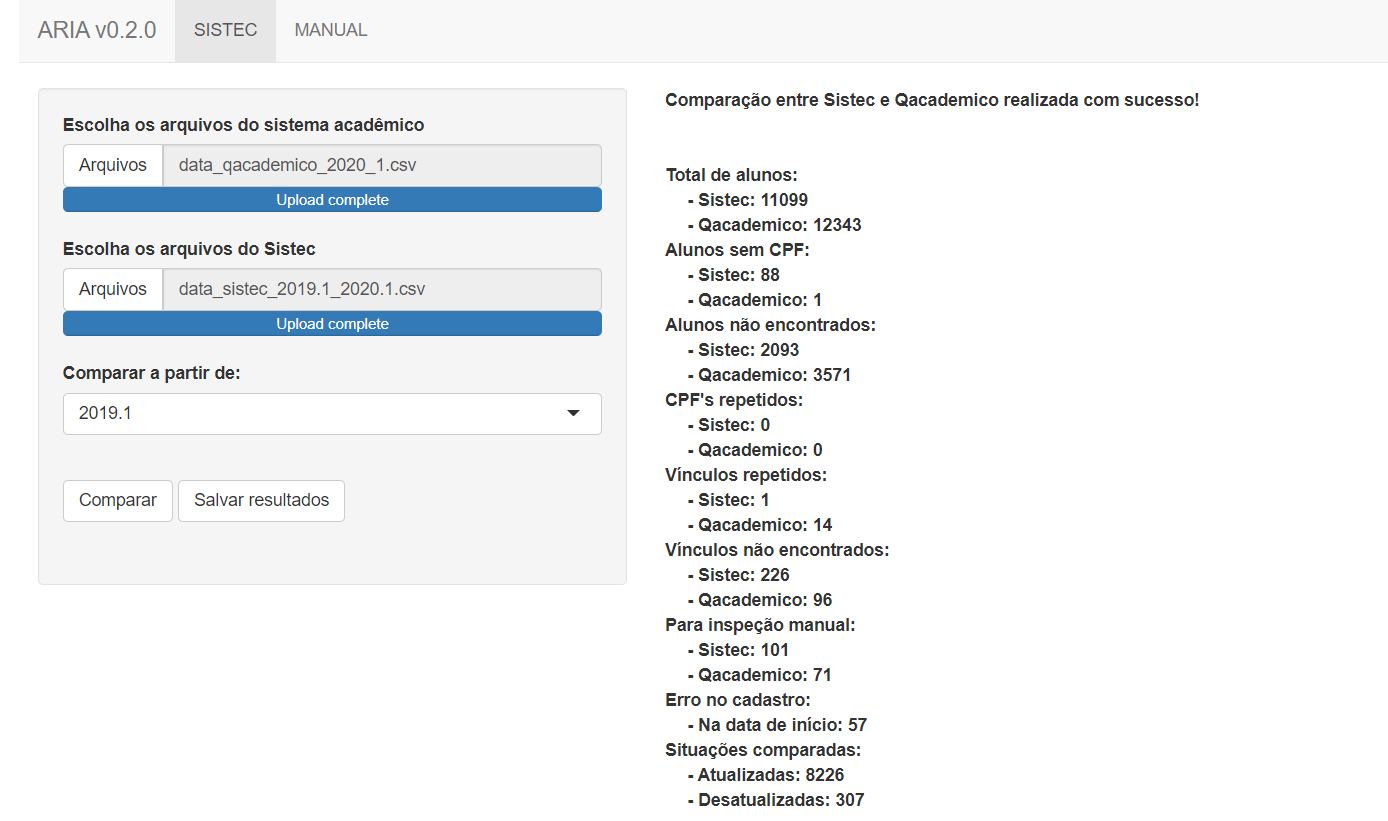Tools to Analyze 'Sistec' Datasets.
sistec: Tools to Analyze Sistec Datasets
The Sistec is the Brazilian system for diploma registration and validation on technical and superior courses. The sistec package provides tools for Brazilian institutions to update the student’s registration and make data analysis about their situation, retention and drop out.
Installation
You can install the sistec package from CRAN as follows:
install.packages("sistec")
To upgrade to the latest version of sistec, run the following command and restart your R session:
install.packages("devtools")
devtools::install_github("r-ifpe/sistec")
Load the package.
library(sistec)
Sistec datasets
You can download the Sistec’s student registration using your proper account on Sistec. The package provides support if your data comes from setec or web. Be sure that your data has these variables:
On setec: “Nome Aluno”, “Numero Cpf”, “Co Ciclo Matricula”, “Situacao Matricula”, “No Curso”, “Dt Data Inicio” and “Unidade Ensino”.
On web: “NO_ALUNO”, “NU_CPF”, “CO_CICLO_MATRICULA”, “NO_STATUS_MATRICULA”, “NO_CICLO_MATRICULA”, “DT_DATA_INICIO” and “CO_UNIDADE_ENSINO”.
Tip: To take every student for your institution/campus using web, search by student name and use " ".
Qacademico datasets
To download the student’s data, go to your proper account on Qacademico and follow:
- “Relatorio de Alunos” –> “Listagem de Alunos” (choose year and period)
- Click on “visualizar”
- Using f10 shortcut and save in .csv format.
- Rename the including year and period (example2020_1.csv)
Be sure that your data has the variables: “Matricula”, “Nome”, “Situacao Matricula”, “Curso”, “Cpf”, “Instituicao”, “Per. Letivo Inicial” and “Cota”.
Sigaa datasets
Sigaa datasets can be partial or complete. These two formats can perform the comparison, but the partial doesn’t have information about “Campus” and “Cota”.
To download the partial Sigaa’s data, go to your proper account on Sigaa and follow:
- Access the panel “Consultas” inside Sigaa module.
- Generate the report “Consulta geral discentes”.
- Select the check box “Trazer informações em forma de relatório” e “Gerar csv”.
- Select the filter “Campus” and other filter you desire.
- Click on “Buscar” and download the file.
For the complete dataset, you have to download directly from the Sigaa database. Be sure that your data has the variables: “Matricula”, “Nome”, “Situacao Matricula”, “Curso”, “Cpf”, “Instituicao”, “ano_ingresso”, “semestre_ingresso” and “Cota”.
Read files
Load the sistec package and pass the folder path to read_sistec() and read_rfept() functions. (NOTE: These datasets were generated randomly and do not represent the reality, it is just for example purpose).
sistec <- read_sistec(system.file("extdata/examples/sistec", package = "sistec"))
qacademico <- read_rfept(system.file("extdata/examples/qacademico", package = "sistec"))
Comparison
Compare the student’s situation using compare_sistec()
comparison <- compare_sistec(sistec, qacademico)
Save results
You can save the comparison in .xlsx format using write_output()
write_output(output_path = "your_folder",
output_folder_name = "the_name_you_want",
comparison = comparison)
ARIA web interface
ARIA is the web interface created in this package to ease your work. You can use all those functions just clicking in a few buttons. The ARIA is available on version desktop, online or run aria() in your R session.
